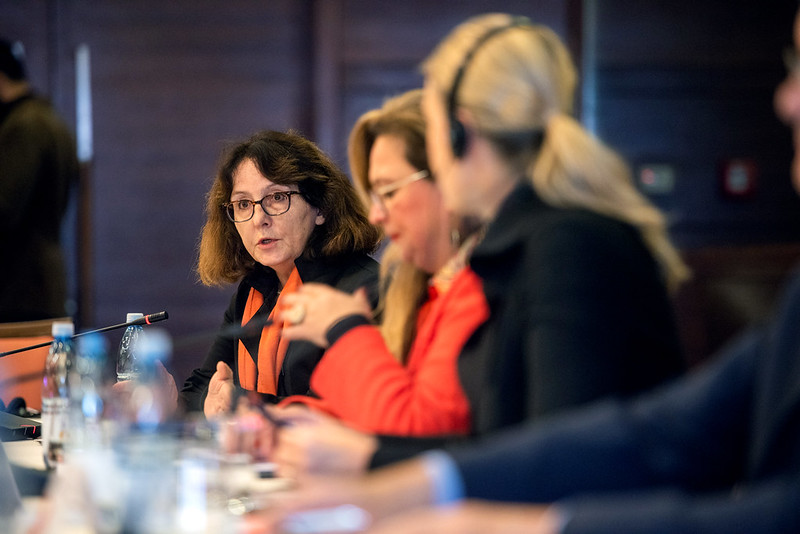The CURE Foundation: Women in Bosnia and Herzegovina
 Empowering women is crucial for gender equality in Bosnia and Herzegovina. While women’s empowerment has often been treated as something that can be bestowed onto female subjects, the CURE Foundation (Fondacija CURE) in Bosnia and Herzegovina challenges this limiting view, recognizing its insufficiency as a transformative strategy for development. Instead, the feminist activist group centers its focus on re-educating, training and engaging with women of all ages to break down socially constructed norms that restrict their agency by reinforcing reductive, patriarchal beliefs.
Empowering women is crucial for gender equality in Bosnia and Herzegovina. While women’s empowerment has often been treated as something that can be bestowed onto female subjects, the CURE Foundation (Fondacija CURE) in Bosnia and Herzegovina challenges this limiting view, recognizing its insufficiency as a transformative strategy for development. Instead, the feminist activist group centers its focus on re-educating, training and engaging with women of all ages to break down socially constructed norms that restrict their agency by reinforcing reductive, patriarchal beliefs.
Women’s Empowerment in Bosnia and Herzegovina
Since the offset of the 21st century, a myriad of nongovernmental organizations (NGOs), development agencies and charities have embarked on the mission of empowering women in Bosnia and Herzegovina to fight against gendered poverty, which is particularly rampant in the country’s rural areas. Vast improvements have been made across the country and the end of the Bosnian War created a political climate that ushered in feminist activism. This activism aims to combat the gendered impacts of the war that further entrenched the notion of women as victims.
The reality that marginalized gender identities are more affected by poverty than heterosexual men is a condition brought about by unbalanced power relations. In this context, women, in particular, are excluded from decision-making processes, policy-making procedures, job progression, skill development and, consequently, the realization of their agency. Research presented by the European Commission showcases the dichotomy of economic realities and opportunities between women and men in Bosnia and Herzegovina.
The study highlights how women earn 46% less than men in the same job, occupy only 40% of managerial positions (a figure which is even lower in the political sector) and have an employment rate of 24.9%. The reduced space allowed for women regarding economic participation increases their vulnerability to poverty. Coupling this with data that demonstrates how one in three women in Bosnia and Herzegovina experience violence in their lifetime, it showcases how women may also be trapped in relationships of dependency. These dependencies are sustained through socially constructed norms reinforcing the “female” duties of caregiver, mother and wife.
History of the CURE Foundation
In the CURE Foundation’s 18 years of activism, the NGO has pioneered a plethora of projects, events, research initiatives and demonstrations that have all contributed to empowering women in Bosnia and Herzegovina. CURE’s strategy involves disseminating knowledge through various channels to increase the visibility of women in decision-making positions. These institutional channels take the form of public protests, workshops in schools, publishing research regarding gendered violence, educating community leaders and organizing campaigns to deconstruct stereotypes that limit women from accessing equal opportunities.
Education and Encouragement Lead to Empowerment
Despite the proliferation of programs aimed at empowering women in Bosnia and Herzegovina, their transformative impact has been limited by a focus on short-term, economic-related results. However, CURE targets the structural inequalities that hinder the realization of women’s empowerment. An example of this is CURE’s “Speak up against violence!” (Progovori o nasilju!) project.
The project targeted gender-based violence by engaging with five organizations across Bosnia and Herzegovina. Each of these organizations put forward two women to undergo training on how to effectively create safe spaces for women, encouraging them to talk about violence and move away from its normalization. Promoting messages such as “I can say no – Love is not violence” on social media platforms has also aided in expanding the audience to other gender identities, thus fostering healthier environments in which the re-framing of rights can take place.
This has a profound impact on empowering women in Bosnia and Herzegovina by shifting narratives of powerlessness to power within. Thus, it mobilizes women in a way that ceases to perpetuate depictions of women as agent-less victims.
Forming Gender-Sensitive Local Policies
The exclusion of women’s voices from policy-making processes reinforces their marginalization and creates strategies that are not representative of the parts of the population that face the struggles of gendered poverty the most; this contributes to the preservation of poverty cycles.
The foundation is combating this through its project: “Gender-sensitive Local Policies of the Municipality of Centar Sarajevo in the EU Accession process,” where research from local women’s organizations is incorporated into policy recommendations. By doing so, gender policies at a local level will target the structural inequalities that disempower women, such as barriers to education, lack of childcare and health care.
Moving Forward With the CURE Foundation
CURE’s program manager, Vedrana Frašto, reiterates the nonprofit’s claim of solidifying feminist activism in the younger generations in Bosnia and Herzegovina, stating that the “women’s movement needs to act now” to make sure the country is continuously progressing towards gender equality. Frašto joined CURE in 2009 and plays a vital role in organizing women’s movements, advocating for more gender-inclusive local policy and fighting the unequal power relations that hinder the processes of empowering women in Bosnia and Herzegovina.
In discussing what is needed from future activists, Frašto expressed her concerns about diminishing interests and slowing down of movements, highlighting that “succeeding” in CURE’s mission will become harder if a larger gap is created between the post-war feminist climate and today’s generation where mobilization efforts have stagnated. That said, she remains hopeful and continues to work towards creating safe environments for women in Bosnia and Herzegovina where they can break down barriers, empower themselves and dismantle the poverty cycle that limits the endless potential of Bosnia’s future female leaders.
– Zara Brown
Photo: Flickr
